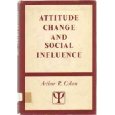THESE AND MANY MORE REVIEWS ARE NOW ALL COLLECTED TOGETHER
Click here for COLLECTED REVIEWS
The Theory of the Leisure Class - by Thorstein Veblen
Removed by Amazon.com
1 star - Pedestrian gawping of little value, I'm afraid..., 4 July 2009

I'd been to led to expect this book was an account of rather silly snobberies by the rich. And that it was exquisite in scholarship, writing style, and detail. Wrong.
Thorstein Veblen - 1857-1929 - and I only checked these details after reading this book - was one of many children of Norwegian immigrants into the USA. They were, or may have been, ripped off, though his father seems to have made money afterwards - I'd guess via a gift of land from the US governement, though if so he seems to have been ungrateful. 'The Theory of the Leisure Class', published in 1899 when he was about 42, caused a stir - or at least that's the story. It precedes Ida Tarbell on Standard Oil by a couple of years.
Veblen's writing style is agonisingly plodding, repetitive and dull. He includes a few Latin and other tags. This must have been a deliberate attempt to project an educated image. He took time to explain his use of some English terms (e.g. 'invidious'). Part of his effect is achieved by using words in slightly the wrong sense. He used 'evolution' rather than 'change' - it sounded more up to date. His typescript (or MS) must have been the sort publishers' readers dreaded. I can't quote a sample here for space reasons.
----
His model of human history is very simple indeed. There *WERE* two types of people and societies:
[1] The sedentary village, low on force and fraud. He calls this 'quasi-peaceful'. There's a law of status. (pp 215 & 236). 'Savages' (undefined) have this sort of lifestyle.
[2] Barbarians, who hate manual work, and prefer 'exploits'. They are ferocious, self-seeking, clannish, disingenuous. They like hunting. A predatory type. Veblen often calls them 'peace-distubing dolicho-blonds'. (He himself had very dark hair - remember Norway and Sweden separated at about this time.)
---------
However, *NOW* (about 1900) there is industry.
[3] Veblen takes progress as given: 'as populations grow denser..', '.. stage of society..', '.. as the community advances in wealth and culture', are typical phrases. These days, the collective interests of modern industry work against the ferocious or selfish aristocrat type (p 227).
4] There is a 'hierarchical gradation of reputability. Ownership on a large scale [is]... the most reputable of economic interests. [then] banking .. law.. the lawyer is exclusively occupied with the details of predatory fraud..' (p.231).
-----------
Veblen means by the 'Leisure Class' property and company owners, financiers, bankers, lawyers. In other words, anyone not concerned with direct manufacturing. Much of his book is concerned with the way they spend or waste money, and the way other people attempt to follow or imitate their behaviour.
What is of value in Veblen?
I have to say I was struck by the small number of piquant examples of oddities in spending and consumption; I'd expected more. Dogs as useless deferential mouths to feed; clean clothes uncontaminated by evidence of work; William Morris's Kelmscott Press. Of men - walking stick, and powdered wig (from Alexander Pope?) On women, bodices, bound feet in China, and general feebleness, were signs of wealth in the husband. He has an odd passage about public parks - men keep the grass tidy, and this is an example of conspicuous consumption, because they are more expensive than cows.
He doesn't seem to know about Chinese mandarins' fingernails, British sumptuary laws, rose gardens and knot gardens and huge country houses as statements of things which are attractive, but unnecessary. He doesn't know about follies, or for example the Hell Fire Club and the Parthenon, both of which in their ways offered employment. Moreover he doesn't seem to understand the economics: a US department store would not stock very cheap items - there's not enough money in them and will reduce other sales. They will cater preferentially for richer customers - and offer, say, sherry, wine, champagne, brandy and other glasses, just to make more money. Veblen's examples are a mostly natural outcome of normal economics. As further evidence, consider that, if Veblen was right, any conspicuous waste might happen: burning of notes, buying of things just to destroy them.
As to the 'leisure class', Veblen, surprisingly, barely considers inherited wealth. New England had many sons and daughters waiting to inherit and the 'leisure class' would seem to fit them perfectly. But Veblen concentrates on other targets. Like Marx, he assumes factory owners just sit back and collect loot - he doesn't seem to realise such people *may* work extremely hard. Similarly, many younger sons of British wealthy families went off to die in various white man's grave parts of the world. For that matter, the 'wolfish earls' in 'Shakespeare' weren't exactly leisurely.
Veblen comes across as a man who moved directly from a peasant society into a much more technologically advanced one. (This must be common now, with uncontrolled mass third world immigration into some modern societies.) It's not surprising such people gawp, and feel fear, and boost their egos with cautious contempt. But I don't think ultimately this book delivers very much.







